ARGENTINA CUISINE
Hey guys! Welcome to another post about my country of residence and its many wonders.Today i would like to talk to you all about the argentinian cuisine.
Before starting with the examples , i would like to explain a bit more of the context of these foods.
Argentine cuisine is described as a cultural blending of Mediterranean influences (such as those created by Italian and Spanish populations) with and very small inflows (mainly in border areas), Indigenous, within the wide scope of agricultural products that are abundant in the country.
Argentinian people have a reputation for their love of eating. Social gatherings are commonly centered on sharing a meal. Invitations to have dinner at home is generally viewed as a symbol of friendship, warmth, and integration. Sunday family lunch is considered the most significant meal of the week, whose highlights often include asado or pasta.
Another feature of Argentine cuisine is the preparation of homemade food such as french fries ,patties and pasta to celebrate a special occasion, to meet friends, or to honor someone. The tradition of locally preparing food is passed down from generation to generation, and homemade food is also seen as a way to show affection.
Now that we undestand a little bit more, let dig right in!
- ASADO
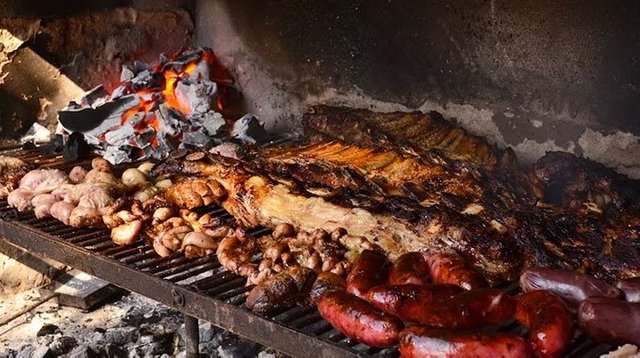
Asado is used in the same way as the English word "barbecue", both for a range of barbecue techniques and the social event of having or attending a barbecue. Grilled meat from the asado (barbecue) is a staple, with steak and beef ribs especially common. The term asado itself refers to long strips of flank-cut beef ribs. Popular items such as Chorizo (pork sausage), morcilla (Blood sausage), chinchulines (chitterlings), mollejas (sweetbread), and other parts of the animal are also enjoyed. In Patagonia , however, lamb and chivito (goat) are eaten more frequently than beef. Whole lambs and goats are traditionally cooked over an open fire in a technique known as ''asado a la estaca. ''
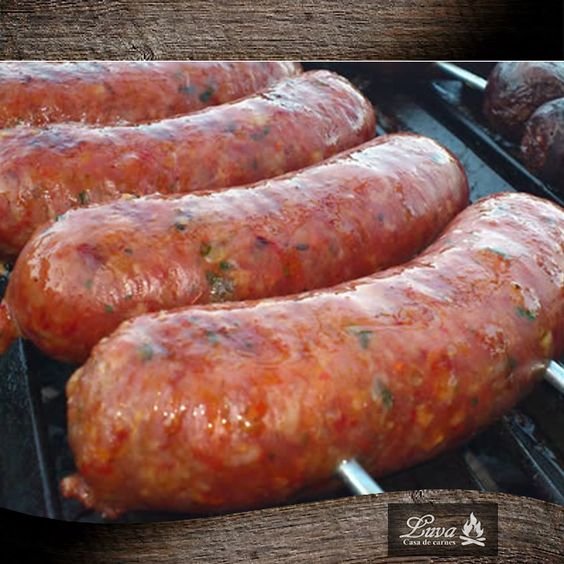
Chorizo
Asado is one of the most well known traditions of Argentina , and people tend to have one each sunday.
- MILANESA
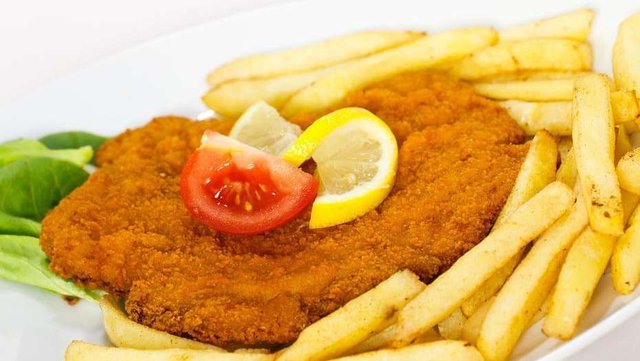
A milanesa consists of a thin slice of beef, chicken , eggplants, tempeh or soy. Each slice is dipped into beaten eggs, seasoned with salt, and other condiments according to the cook's taste (like parsley and garlic). Each slice is then dipped in bread crumbs (or occasionally flour) and shallow-fried in oil, one at a time. Some people prefer to use very little oil and then bake them in the oven as a healthier alternative. Milanesas can be paired with fried eggs and fries ( milanesa a caballo ) , or with mashed potatos ( Puré de papa). It's one of the most popular dishes in Argentina.
- PASTA
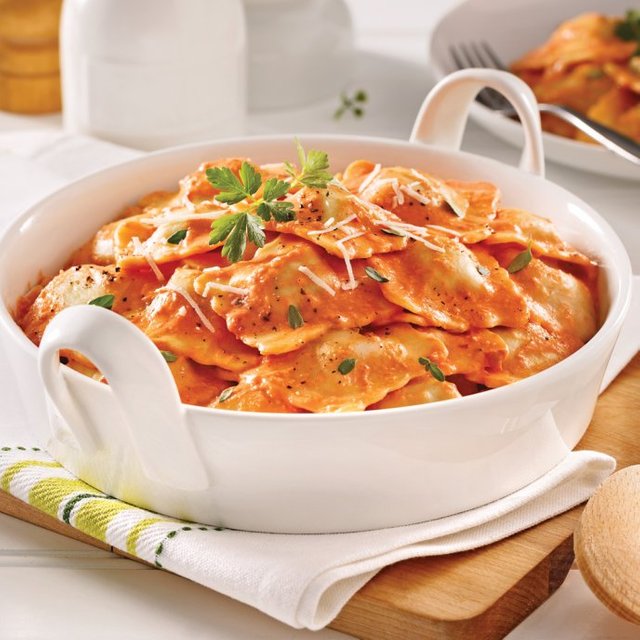
Ravioles
Italian staples, such as pizza and pasta, are eaten as commonly as beef. Fideos (noodles), tallarines (fettucine and tagliatelle), ñoquis (gnocchi), ravioles, and canelones (cannelloni) can be bought freshly made in many establishments in the larger cities. Italian-style ice cream (helado) is also served in large parlours and even drive-through businesses.
- MATE
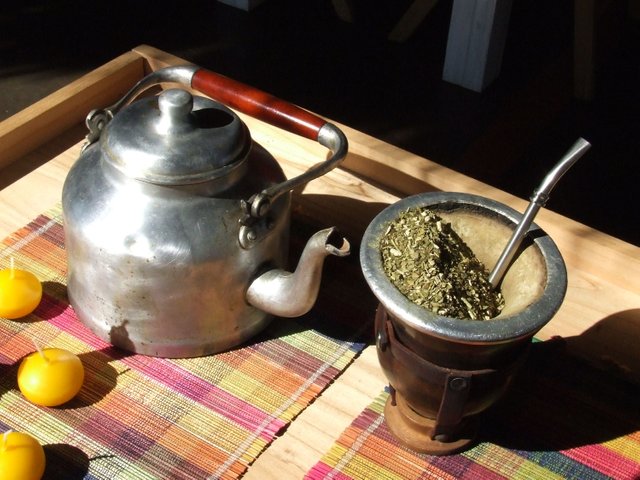
Mate is an infusion that is prepared by steeping dried leaves of yerba mate in hot water and is served with a metal straw from a shared hollow calabash gourd.
Mate can be sweetened with sugar, or flavored with aromatic herbs or dried orange peel. Hot but not boiling water is poured into the gourd, drunk, then the mate is refilled.
The mate is nearly full of leaves, so each refill only makes a small drink, but many refills are possible before the yerba is spent. In small gatherings it is traditional for one mate to be passed from person to person, filled by whoever has the kettle. It is customary not to thank the refiller routinely; a final gracias (thank you) implies that the drinker has had enough. Drinking mate together is an important social ritual.
ON A SIDE NOTE : Mate cocido is the same leaf, which rather than brewed is boiled and served, like tea, with milk and sugar to taste.
- EMPANADAS
Argentine empanadas are often served during parties and festivals as a starter or main course. Shops specialize in freshly made empanadas, with many flavors and fillings.
The dough is made with wheat flour and beef drippings for the fillings which differs from province to province. Some places use chicken, and some places beef (cubed or ground depending on the region) spiced with cumin and paprika. Some other fillings are onion, boiled egg, olives, or raisins. Empanadas can be baked or fried. It also can contain ham, fish, humita (sweetcorn with white sauce), or spinach; a fruit filling is used to create a dessert empanada. For the interior regions, they can be spiced with peppers.
In those places (usually take-out shops) where several types are served, a repulgue, or pattern, is added to the pastry fold to distinguish the varieties (although it is more common nowadays to burn a letter – an abbreviated indication of the filling – into the dough). In larger cities, empanadas are eaten more as take-away food, sourced from restaurants specializing in this dish. They usually carry dozens of different varieties, which is not the case in northern provinces, where empanadas are usually made at home, with more traditional recipes.
During Lent and Easter, empanadas de Cuaresma fillings with fish (usually dogfish or tuna) are popular.[6]
Also popular are the so-called "Arabian" empanadas (empanadas árabes or fatay), filled with beef, tomato, onion, and lemon juice, similar to the fatayer made in the Levant.
- DULCE DE LECHE
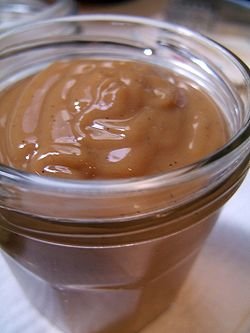
Dulce de leche is a confection prepared by slowly heating sweetened milk to create a substance that derives its flavour from the Maillard reaction, also changing colour, with an appearance and flavour similar to caramel. Literally translated, it means "jam made of milk" or "sweet made of milk." It is a traditional Argentine, Brazilian, Chilean and Uruguayan specialty. It is very popular in many Latin American countries.
It's used in many desserts and sweets such as the alfajor and pastries.
HOPE YOU LIKE MY POST! See you later! :)
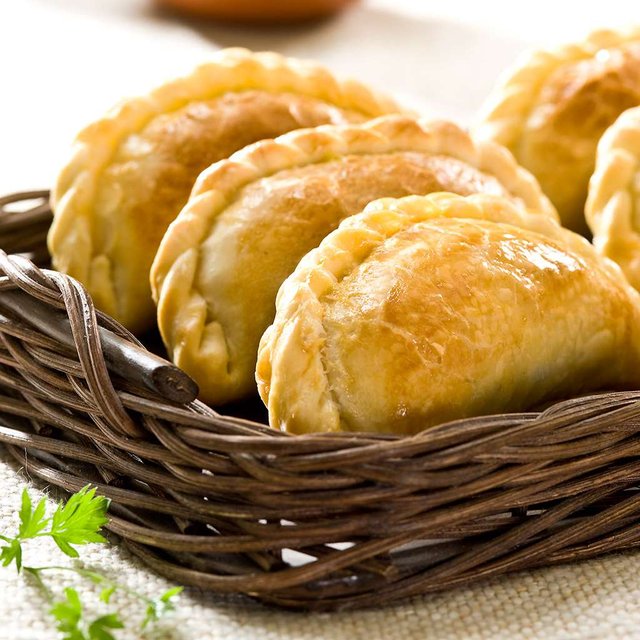
Toda la onda el post Gonza, hasta me diste hambre
looks so yummy thank you for sharing
Upvote my dude
Great story! We're happy to follow you. Please check out our feed when you get a chance. Thanks from the @nomadcouple
Get Paid For Your Comments 💰 🤑 https://steemit.com/steemit/@a-a-a/get-paid-for-your-comments
Congratulations @gonza.freytes! You received a personal award!
Click here to view your Board
Do not miss the last post from @steemitboard:
Congratulations @gonza.freytes! You received a personal award!
You can view your badges on your Steem Board and compare to others on the Steem Ranking
Vote for @Steemitboard as a witness to get one more award and increased upvotes!